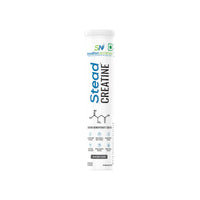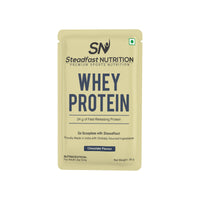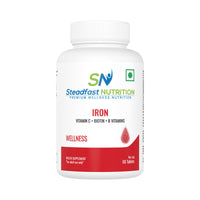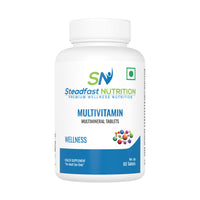Table of Content
Whether you have joined a gym under the new year resolution, or are just about to begin your fitness journey, you surely have landed on the right article that will serve you as your guiding map as you move up on the gymming ladder. First, make up your mind to be disciplined throughout the journey in what you eat and the exercises you perform. Diet plays a huge role in how you feel and build your physique. It won't be like you gulp down anything high in calories and expect instant results like big muscles, since these can only help you gain weight. So, it is important to include the three macronutrients: carbohydrates, proteins, and fats that play a crucial role in maintaining bodily functions, helping build strength and also, keeping in mind to eat the correct foods at the right time to make the most of each component.
Why Does Diet for Gym Beginners Matter?
As you are on the path to building something new, it is important to have a strong foundation. For gymming, this foundation includes the right diet with the right nutrients and regular exercise, which will help one carry out the best results effectively. A well-planned, nutritious diet can support the body’s nutrient requirements during the training session. With key macronutrients like carbohydrates, protein and fats, a balanced and nutritious diet supports the recovery process, promotes muscle growth and repair, and fuels the workout, providing adequate energy required by the body for enhancing performance. Protein is a vital macronutrient for building and repairing muscles and supporting recovery; carbohydrates and fats are the right macronutrients to meet the increased energy levels. Also, not just macronutrients, one should also incorporate micronutrients (vitamins and minerals) as they play a key role in metabolism, support the immune system, growth and development, prevent deficiency diseases, and improve overall well-being. You may also include pre-workout meals to support the training session.
Key Nutrients for Gym Beginners
Carbohydrates
The two types of carbohydrates, i.e. complex and simple, are the primary energy sources used for energising the body during exercise. The main difference between the two is that complex carbohydrates take longer to digest than simple carbohydrates. This makes complex carbohydrates better for consumption as they provide a sustained release of energy due to high fibre content, giving the body prolonged energy to run on. Include complex carbohydrates like whole grains, beans, millet, pulses, nuts, whole fruits, and vegetables in a balanced gym diet.
Protein
This is one of the much-talked-about nutrients for a gym goer, even for anyone who has just begun their fitness journey. Proteins are the introductory macronutrients in any gym diet. Protein is the key factor in the repair and recovery of the muscles after each strenuous and stressful exercise session. Proteins help shorten the recovery period by a fraction, expediting the repair process. Include protein-rich food sources like chicken, fish, meat, eggs, milk, curd, paneer, beans, soy, and nuts in the gym diet to fulfil the protein requirements through the diet itself. Protein supplementation may be needed by those unable to meet their dietary protein needs due to hectic lifestyles or those who are into professional or sports training.
Fats
It is just a myth that including fats in your diet can only make you fat - on the contrary, if consumed in the right amounts, good fats are beneficial for your body. Good fats such as PUFAs and MUFAs are a great way of expediting recovery, reducing inflammation along with being a great source of energy. Fats play a key role in the absorption and transportation of other nutrients. They also have a positive impact on heart health and hormone production when consumed in moderation. Foods rich in PUFAs and MUFAs are avocados, peanuts, sesame oil, sunflower oil, mustard oil, marine sources, olive oil, fish oil, and nuts and seeds.
Hydration: Key to Performance and Recovery
Hydration is one of the most basic needs of every individual. It becomes even more important as one starts to partake in any physical activity like gymming as it directly impacts performance and recovery. The key roles that water performs are to transport nutrients, regulate body temperature, and keep muscles functioning efficiently. It is advised to drink water and electrolytes before, after and during exercise to avoid the situation of dehydration which might lead to fatigue and muscle cramps.
It is advisable to drink at least 8 glasses of water in a day, you might add to the quantity when exercising or living in a hot & humid climate as per your need. Not just water, it is ideal to include foods rich in water like watermelon, cucumbers, kiwi, grapefruit, oranges and more.
The American College of Sports Medicine (ACSM) recommends drinking fluids about two hours before exercise to maintain hydration, reduce fatigue and enhance performance. Also, drinking water at regular intervals replenishes the electrolytes lost through sweating during workouts. It is better to have homemade drinks and avoid packaged sugar options as they are not healthy for our system. Drinks to include are beverages like coconut water, lemon juice, amla juice, green tea, or fruit or vegetable juices.
7-Day Diet Plan for Gym Beginners
|
Day |
Pre-workout |
Breakfast |
Mid-morning |
Lunch |
Evening Snack |
Dinner |
|
Day 1 |
Apple |
Egg omelette |
Trail mix (Almond, walnut, dates) |
Rajma curry with rice |
Strawberry smoothie |
Vegetable quinoa upma |
|
Day 2 |
Banana |
Moong dal cheela |
Watermelon |
Chicken wrap |
Sattu drink |
Tofu salad bowl |
|
Day 3 |
Rice cake with peanut butter |
Egg sandwich |
Coconut water |
Cauliflower veg with multigrain chapati |
Tea/coffee with roasted makhanas |
Chicken soup with sautéed veggies |
|
Day 4 |
ABC juice |
Paneer wrap |
Papaya |
Chickpea and veggie salad bowl |
Lassi/Chaach |
Avocado toast with pumpkin soup |
|
Day 5 |
Apple with peanut butter |
Ragi dosa |
Blueberry smoothie |
Lady finger with multigrain chapati and beetroot raita |
Veg Poha |
Roasted garlic-Lemon Broccoli with Lentil soup |
|
Day 6 |
Banana |
Besan cheela with mint chutney |
Kiwi |
Spinach moong dal with chapati and curd |
Lemon water with Sprouted moong |
Grilled tofu salad |
|
Day 7 |
Orange |
Scrambled egg |
Pineapple |
Sambar with Rice & kachumber salad |
Green tea with roasted Chana |
Chicken curry with multigrain chapati |
Common Diet Mistakes to Avoid While Following a Diet for Gym Beginners
As a beginner, it is possible that you may face several problems and you might end up making mistakes at times. But this is nothing to worry about as we have listed a few common mistakes that might be interrupting your gymming and gym diet journey. Here’s what to avoid.
1. Skipping meals
This is one of the most common misconceptions that having all meals such as breakfast, lunch, evening snack and dinner can lead to weight gain or obstruct progress. People tend to skip meals since they they think this can accelerate the weight loss process without effort on the body. Skipping meals won't let you lose weight but instead, it slows down the body’s metabolism and drains out the energy. This can also result in muscle loss due to uneven replenishment. Instead, one can make mindful food choices with controlled portion sizes to balance overall calorie intake. Intermittent fasting may help a few with weight loss but following it for a long time continuously can lead to potential side effects.
2. Not including Enough Protein
Most people don't include enough protein in their diet, which impacts muscle recovery and growth. Many rely on supplements to meet their daily protein requirements instead of focusing on protein-rich foods. So, introducing the right protein-rich food sources along with good-quality protein supplements from Steadfast Nutrition's protein range can prove to be beneficial. There are a variety of protein supplements to choose from in the whey protein recovery category, including whey protein concentrate or whey isolate in precise dosage sachets for effective results. You may also include pre-workout meals to support the training session.
3. Improper hydration
Not consuming an adequate amount of water can make the body go into a dehydrated state. Consuming water can help replenish the body’s fluid balance and you may take additional support from energy drinks for replenishing the lost electrolytes. Including fluids in the form of fruit juices, lemon water, chaach/lassi, coconut water, smoothies can help balance the body’s fluid levels. Fluids and electrolytes also help in managing the heart rate and regulate blood pressure along with lowering chances of muscle cramps.
4. Relying on crash diets
Targeting quick and instant weight loss through slashing the calorie intake and without any exercising thinking it can melt that fat away is also a common mistake. Following fad diets to achieve goals is a common mistake made by gym beginners. Crash diets focus on limiting the calorie intake with some almost promoting starving to lose weight. Following these crash diets and completely restricting carbohydrates or fats can lead to digestive issues, nutrient deficiencies, and eating disorders if followed for long.
5. Unhealthy snacking
Focusing on only healthy major meals and snacking on unhealthy junk foods can lead to an imbalance in calories. Increasing the intake of unhealthy processed and packed foods may hinder achieving the targeted goal. Uncontrolled munching on junk food or foods high in refined flour or fat content can lead to unintended intake of excess calories. Intake of sugary and carbonated beverages can add up to empty calories and won't help in gymming either. Instead of consuming processed foods, try consuming healthy snacks including whole foods like protein bars, nuts and seeds, roasted chana or makhana instead.
Following these gym nutrition tips and sticking to a healthier diet plan will result in better results.
Supplements for Gym Beginners
Supplements are commonly used by audiences in general and sports enthusiasts for various reasons — to enhance workout performance, build strength, increase lean muscle mass, and reduce fatigue. Some popularly used workout supplements for gym beginners are:
- Whey protein: Whey protein supplements enriched with essential amino acids support muscle growth and recovery. It is important to include high-protein supplements with fast-releasing whey protein powder to expedite the muscle synthesis process and reduce muscle soreness. Usually available in whey protein concentrate, isolate or hydrolysate form, they can be chosen as per the targeted goal and the body’s physical activity level.
- Creatine monohydrate: It is used for improving strength and energy levels by replenishing ATP (adenosine triphosphate), a source of energy that provides fuel to the muscles. Creatine monohydrate helps improve overall performance with quicker muscle recovery, enhancing endurance. It also supports muscle growth.
- Branched-chain amino Acids (BCAAs): These are one of the key supplements that support muscle recovery. BCAAs aid in muscle growth, reduce soreness, prevent fatigue, increase muscle protein synthesis and provide energy for workouts.
- Beta-alanine: It is usually used to enhance performance in high-intensity workouts, helps delay fatigue and improves performance.
When consuming pre-workouts it is recommended to take them 30–45 minutes before exercise for best results. However, beginners should consult a healthcare professional to determine the right dosage and avoid potential side effects.
One can also include general wellness supplements in their diet to make up for the missing nutrients in the diet. Below are the supplements that are to be included:
- Steadfast Multivitamin tablets enhance overall health, fulfil their micronutrient needs, and prevent deficiencies.
- Vitamin D3 capsules resolve the issue of its deficiency, prevent bone demineralisation while strengthening bones; and strengthen the immune system.
- Steadfast Iron tablets are a great option for individuals experiencing low iron levels to overcome symptoms like fatigue, dizziness, and shortness of breath.
Tips for Staying Consistent with Your Diet
You will feel motivated and will wish to keep going only if the diet you choose is not too out of your comfort zone. However, setting realistic and achievable goals can only be beneficial when you schedule your routine. Make changes in the schedule when you feel things aren’t working out as you wanted. You can also reward yourself by doing your favourite things, giving yourself your favourite treat or a cheat meal once you reach a set target and stepwise move towards the next goal to be achieved. So, it is important to be aware of how much you can abide while following the gym nutrition tips as it is not just when you begin your diet plan but how you stay consistent with it.
Conclusion
So, it's true as we know - we are what we eat; keeping your eating habits in check whether you are a beginner or have been into this for a long. Also, there is no need to become too harsh with yourself and you can take a break and have a cheat day once in a while but not too often. Be consistent in your gymming routine, follow the gym diet for beginners and you shall emerge as a winner.






